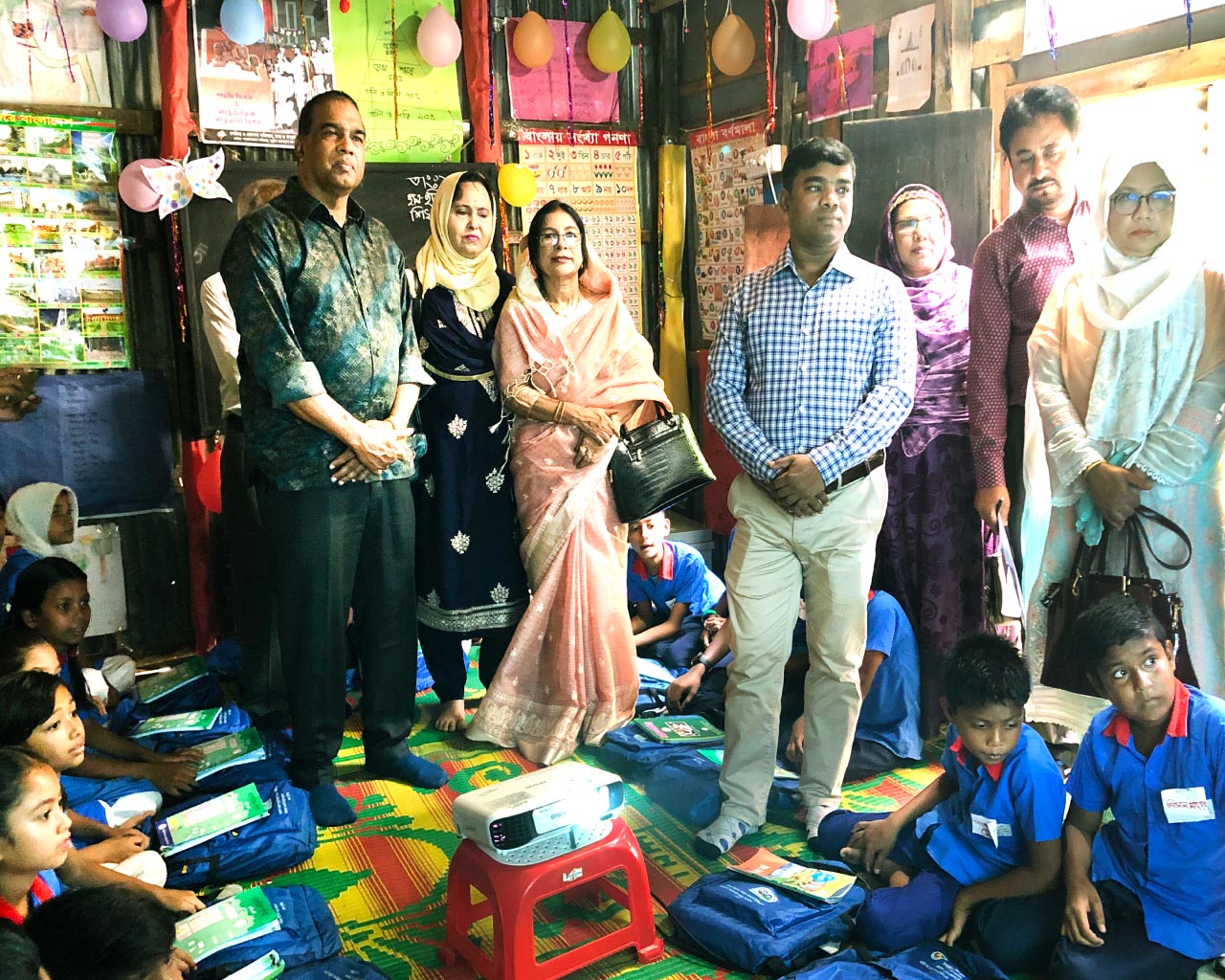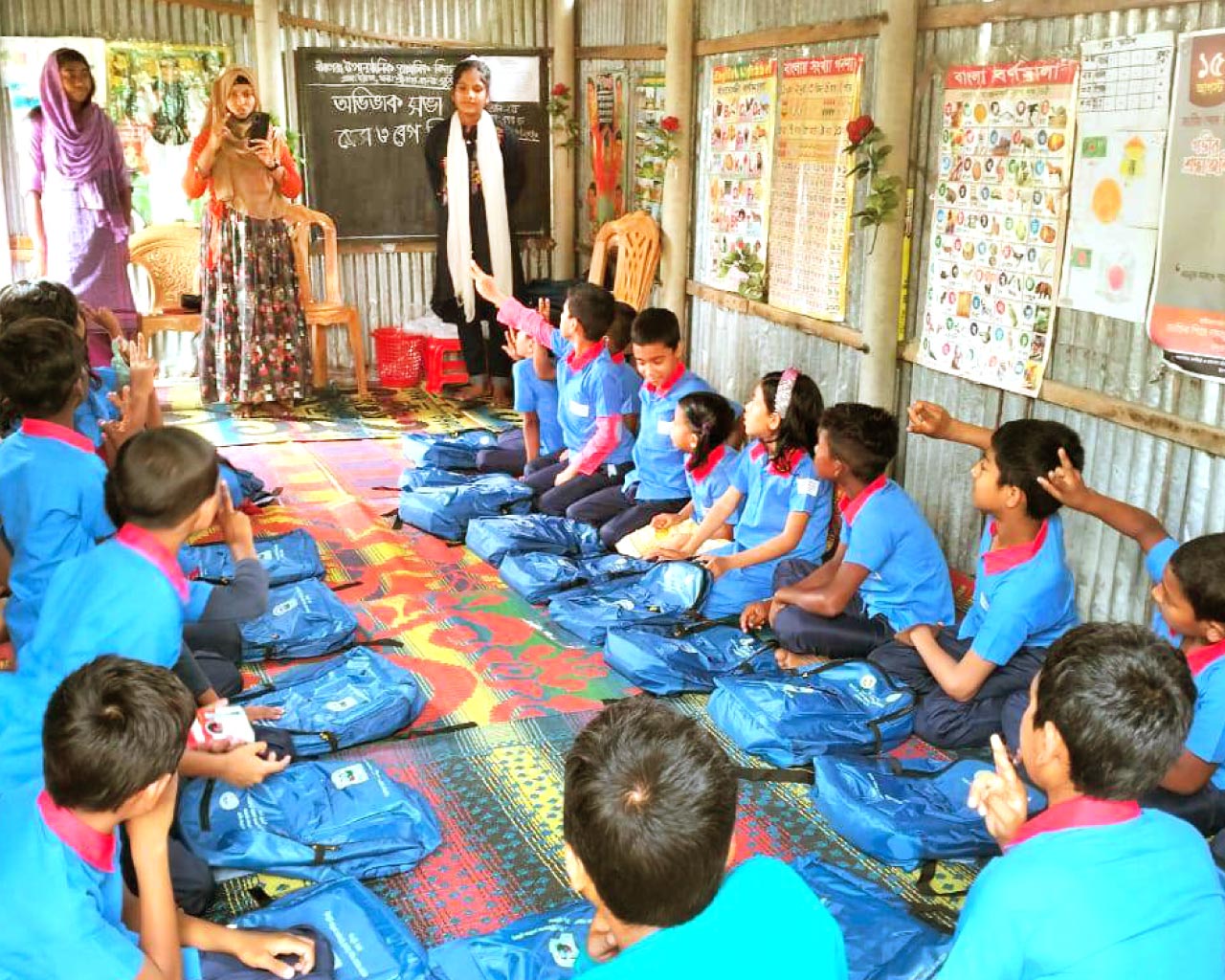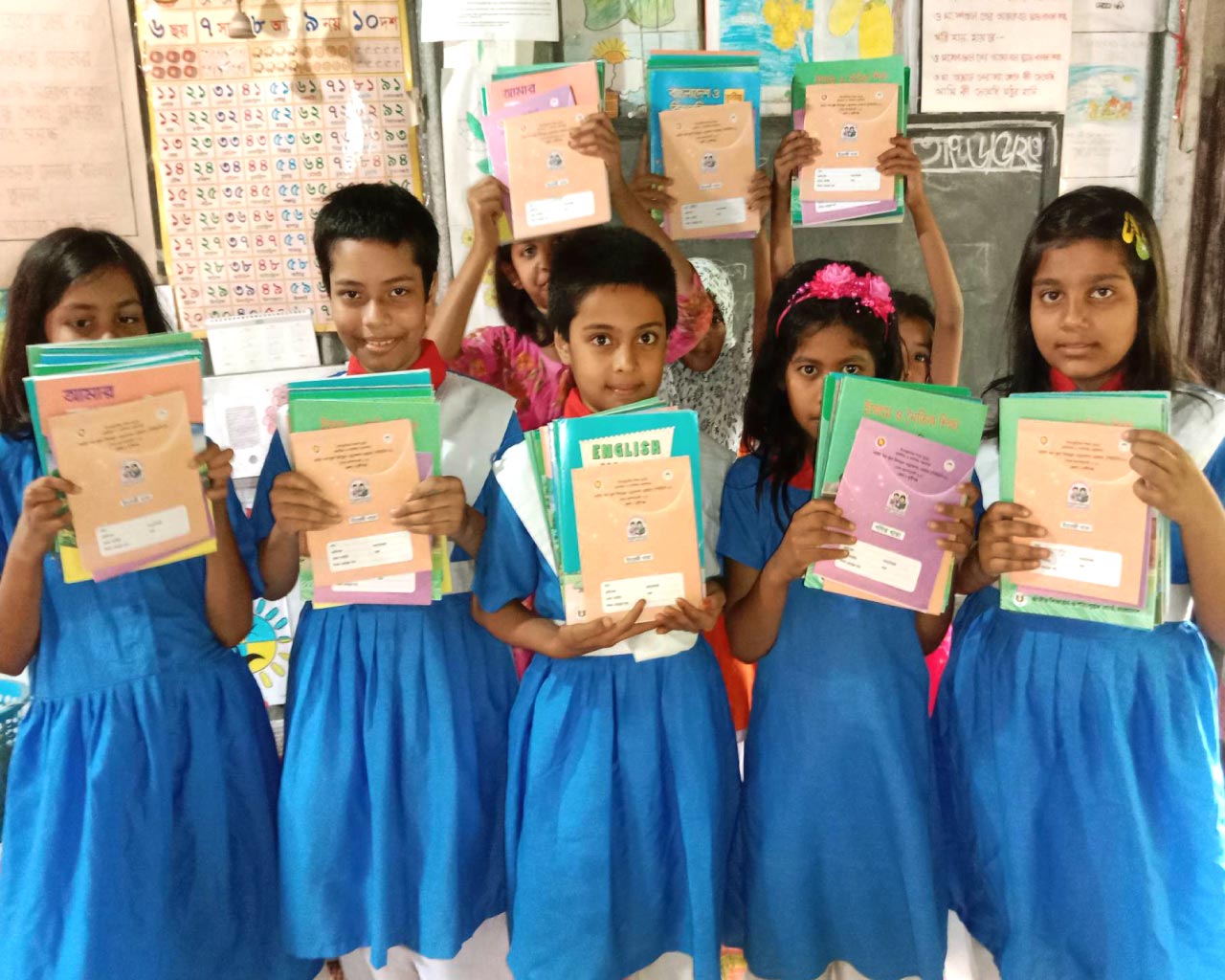Eductation

Bangladesh took all out efforts toensure quality of education following the SDG-04 through developing National Education Policy 2010 and National Skill Development Policy along with a latest five year plan forits quick implementation. NGOs are also contributing in achieving SDG-4 in the education sector. To achieve SDG-4 RIC is contributing in the following areas;
- Contributing to increase enrollment of the children by improving access (both quantitatively and qualitatively) to basic education of school aged children from poor and ultra-poor house holds.
- Contributing to increase literacy rate through providing Basic Literacy and Life Skills to illiterate adolescents and adults of 15-45 age group
- Contributing in eradicating illiteracy from the country as well as achieving global and national EFA goals as envisaged in NPA-II and the Sixth Five Year Plan
- In the reporting year served 9046 people under food security service delivery interventions and served poorest, deprived people through following projects
 Out of School Children Education Programme (OoSCE):
Out of School Children Education Programme (OoSCE):
Mr. Nuruzzaman Sharif (NDC), Director (Planning & Monitoring) BNFE, Md. Moniruzzaman Programmer MOPME, Fahmida Begum, Deputy Director (Implementation) and Murshida Begum, System Analyst, BNFE attended at an inauguration event on ‘Digital Learning Centre’ in Munshigonj.
Out of School Children’ Program as Second Chance Education (SCE) Program under sub-component 2.5 of Component-2 ‘Equitable Access and Participation’ of PEDP-4 aims to provide primary education through a flexible non-formal education system to 1 million out-of-school children of this age group.
With the aim of increasing the literacy rate of the country by creating scope for the dropped out and non-included children of particular age in the mainstream education system.
The Bureau of Non-formal Education of the Ministry of Primary and Mass Education has initiated the "Out of School Children Education Program" subcomponent 2.5 of PEDP-4 to provide primary education as a second chance opportunity for the out-of-school children (dropped out and never enrolled) of 8-14 years age group to bring them into the mainstream of the formal education system.
RIC has been implementing the program in Munshigonj district as an Implementation Support Agency (ISA).
Though the project was initiated in December 2020 to complete a set curriculum in 44 months, the enrollment of drop-out school children creates a big challenge. At the beginning of the project, 12600 children were selected through a baseline survey process to establish 70 learning centers in each Upazila of the district, considering a standard of 30 students for each center.
However, up to June 30, 2023, a total of 395 Learning centers were in operation with 9046 learners.
For smooth functioning of the Learning Center during the period 395 Learning Centers were established with all necessary materials and equipment, Staff as per the project guideline recruited and deployed , necessary training imparted to the Teachers and Programme Supervisors, Center Management Committee (CMC) were formed as per the guideline of the project, Children were provided with education materials and books, School bag and Uniform.
Meeting with the parents of the students were organized, National days were observed and meeting with the different stakeholders were also held.
- Introduction of digitization of learning centers as piloting to replicate the same in other types of interventions
- Linked with the Government Stipend Program for primary school students for the out of school children
To find out eligible students particularly school dropout children is very difficult without sincere cooperation from the officials of the concern department as student drop out from a school indicates negative impression on the performance of the school. However could overcome the situation and could enrolled requisite number of the students to operate Learning Center.

